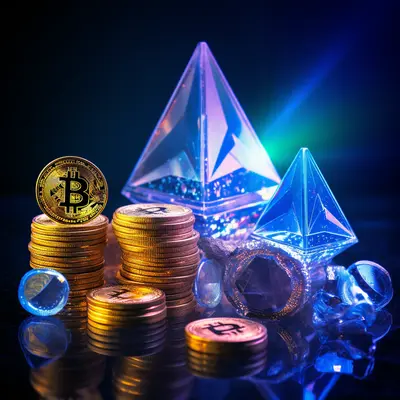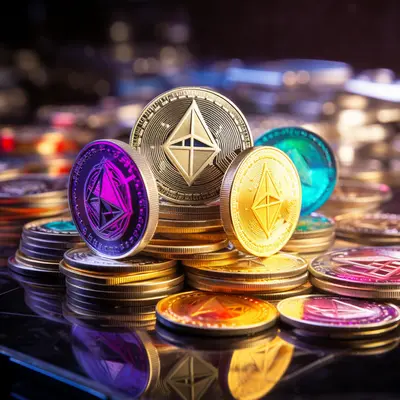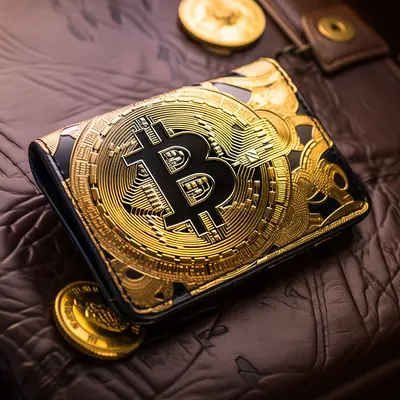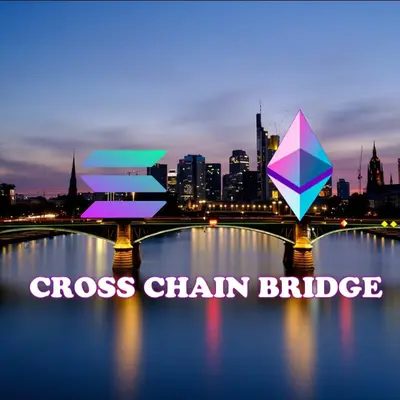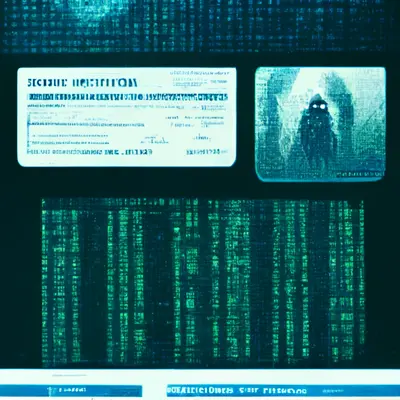What is a non-custodial wallet? Why own a non-custodial Wallet?
What is a non-custodial wallet? How is it different from a regular exchange wallet? Find out about the must-have wallet when playing DeFi here!
What is a non-custodial wallet? How is it different from the exchange wallet? Why do I have to use a non-custodial wallet to connect to DeFi? I'm sure many newcomers to the market will have a lot of questions about non-custodial wallets, let's find out through this article.
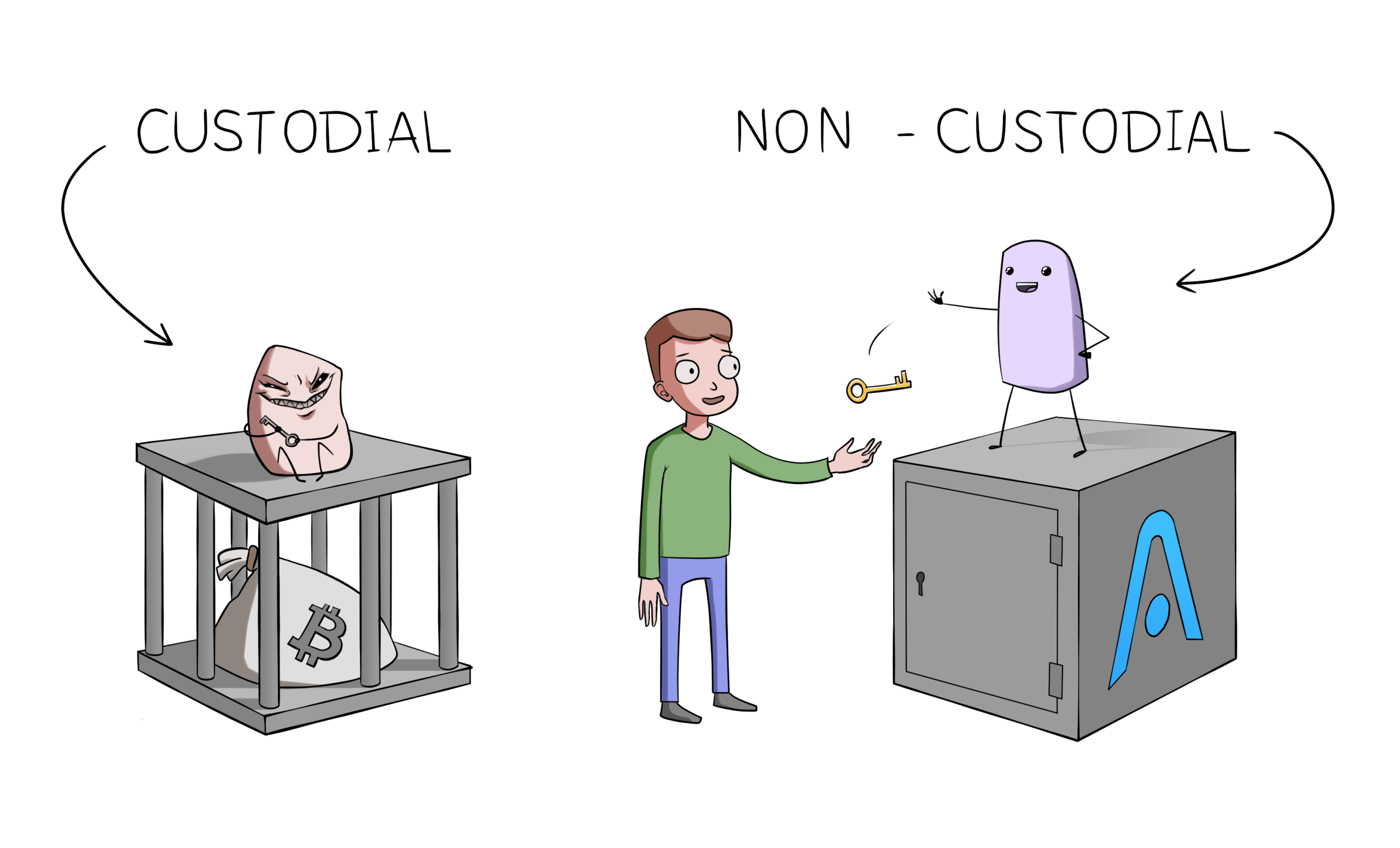
What is a non-custodial wallet?
A non-custodial wallet is a type of software on a computer or phone that helps to store Crypto assets, allows users to have full control of their assets with the private key or passphrase associated with the wallet.
It can be understood simply that when you own a non-custodial wallet, no one (including the wallet provider) has the right to freeze, access or trade the user's assets except the user himself. Non-custodial wallets only provide users with an interface to directly interact with assets stored on-chain on the Blockchain .
To create or restore a non-custodial wallet, you need to use a key. There are 2 types of keys to note:
- Passphrase (Mnemonic Seed): Contains from 12 to 24 English keywords in order.
- Private key: Is a string of characters in alphanumeric format that is also stored on your device.
These two pieces of information are encrypted and stored in a secure area on the mobile device that only the user can access. This is extremely important information, so after creating a non-custodial wallet, you must save your private key and passphrase immediately to back-up the wallet or restore the wallet for future use cases.
To better understand the importance of these two pieces of information, please refer to: What is Private Key & Passphrase? The safest and most secure way to store Private Key & Passphrase
Advantages of non-custodial wallets
Users have full control of assets: This is the biggest advantage that users find in non-custodial wallets. You do not need to depend on any third party, not afraid of the floor collapsing, not afraid of the floor being hacked because the property is still in your hands. In addition, you can also transfer assets to the exchange to trade or receive coins to your wallet anytime and anywhere. All information is transparently stored on-chain and transactions are verifiable.
Security: The risk of information theft in non-custodial wallets is very low. Because with non-custodial, you do not need to KYC (verify your identity), provide personal information to any organization. Everything is transacted based on the wallet address.
Instant experience: No need to authenticate by a third party, every transaction is made on a non-custodial wallet almost instantly and is confirmed by the user himself.
Compare non-custodial wallet with custodial wallet
| Characteristic | Non-custodial wallet | Custodial wallet |
| Private Key | User holds | Holding third parties (could be centralized exchanges, brokerage services, asset buying, selling and storing platforms...) |
| Transaction Type | Real-time on chain | Not real-time on chain |
| Security | High (all user-controlled information unless you share it with others) | Low (information can be hacked unless third parties have strong security measures) |
| Offline accessibility | No logins or requests from third parties are required. | Requires login and makes requests from third parties. |
| Backup & Recovery | Controlled by the user, if you lose your private key, no one can help you restore your wallet | It is possible to get third-party assistance to regain access to the wallet. |
Popular non-custodial wallets
You can refer to and use some popular non-custodial wallets today such as Metamask, Trust Wallet, Zapper, Zerion, Liquality ,...
Frequently asked questions about Non-custodial Wallet
What are non-custodial wallets used for?
Non-custodial wallet for storing Crypto assets of different blockchains. Depending on the application, you can trade coins directly and manage assets on different wallet applications.
In addition, non-custodial wallets also help you access and use services and features of decentralized finance (DeFi) applications. Something that custodial wallet does not allow you to do.
What kind of crypto assets is this wallet for?
Depending on the non-custodial wallet application, it will support different blockchains, such as Bitcoin, Ethereum, Binance Chain, Binance Smart Chain, TRON, Solana,...
If the custodial wallet only stores the coins listed on the exchange, then you can store any coin/token as long as they are in the token standard supported on the blockchains on the non-custodial wallet.
Some popular token standards such as: ERC-20 (Ethereum Blockchain), TRC-20 (TRON Blockchain), SPL (Solana Blockchain), BEP2 (Binance Chain), BEP20 (Binance Smart Chain),...
Does storing on a non-custodial wallet cost a fee?
To transfer coins or receive coins to a non-custodial wallet, you will not need to pay a fee to the developer of the non-custodial wallet application.
However, you will lose a known/validator fee for the miner to validate the transaction on the blockchain, also as the gas fee.
Is the wallet linked to the exchange?
Non-custodial wallets are not directly linked to a centralized exchange (CEX). Therefore, to buy and sell crypto, you need to transfer the amount of coins stored in the non-custodial wallet to the CEX exchange.
In contrast, non-custodial wallets can link directly to a decentralized exchange (DEX). You can link non-custodial wallets with exchanges like Uniswap, Sushiswap, 1Inch, etc. to trade coins as usual.
summary
If you want to participate in exchanges in the DeFi world, experience trading on DEXs or AMMs or simply speculate on DeFi tokens - tokens that are still not listed on, then a non-custodial wallet is a good option. factors always appear in those experiences.
Hopefully, the above article has helped you better understand the concept of non-custodial wallet, distinguish non-custodial wallet and custodial wallet as well as its benefits.
Oct 03, 2022


